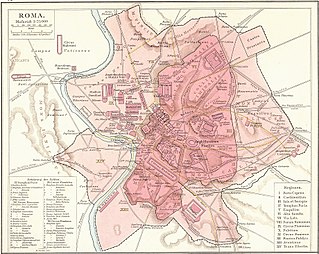 W
WCommentarii de Bello Civili (Commentaries on the Civil War), or Bellum Civile, is an account written by Julius Caesar of his war against Gnaeus Pompeius and the Roman Senate. It consists of three books covering the events of 49-48 BC, from shortly before Caesar's invasion of Italy to Pompey's defeat at the Battle of Pharsalus and flight to Egypt. It was preceded by the much longer account of Caesar's campaigns in Gaul and was followed by similar works covering the ensuing wars against the remnants of Pompey's armies in Egypt, North Africa, and Spain. Caesar's authorship of the Commentarii de Bello Civili is not disputed, while the three later works are believed to have been written by contemporaries of Caesar.
 W
WCommentāriī dē Bellō Gallicō, also Bellum Gallicum, is Julius Caesar's firsthand account of the Gallic Wars, written as a third-person narrative. In it Caesar describes the battles and intrigues that took place in the nine years he spent fighting the Celtic and Germanic peoples in Gaul that opposed Roman conquest.
 W
WThe Forum of Caesar, also known by the Latin Forum Iulium or Forum Julium, Forum Caesaris, was a forum built by Julius Caesar near the Forum Romanum in Rome in 46 BC.
 W
WPoems by Julius Caesar are mentioned by several sources in antiquity. None are extant.
 W
WPoems by Julius Caesar are mentioned by several sources in antiquity. None are extant.
 W
WPoems by Julius Caesar are mentioned by several sources in antiquity. None are extant.
 W
WJulius Caesar, the Roman dictator, was assassinated by a group of senators on the Ides of March of 44 BC during a meeting of the Senate at the Theatre of Pompey in Rome. The senators stabbed Caesar 23 times. The senators claimed to be acting over fears that Caesar's unprecedented concentration of power during his dictatorship was undermining the Roman Republic, and presented the deed as an act of tyrannicide. At least 60 senators were party to the conspiracy, led by Marcus Brutus, Gaius Cassius and Decimus Brutus. Despite the death of Caesar, the conspirators were unable to restore the institutions of the Republic. The ramifications of the assassination led to the Liberators' civil war and ultimately to the Principate period of the Roman Empire.